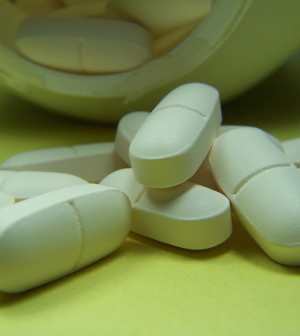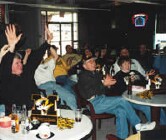- 8 Ways to Increase Dopamine Naturally
- 7 Best Breads for Maintaining Stable Blood Sugar
- Gelatin vs. Collagen: Which is Best for Skin, Nails, and Joints?
- The Long-Term Effects of Daily Turmeric Supplements on Liver Health
- Could Your Grocery Store Meat Be Causing Recurring UTIs?
- Are You Making This Expensive Thermostat Error This Winter?
- Recognizing the Signs of Hypothyroidism
- 10 Strategies to Overcome Insomnia
- Could Artificial Sweeteners Be Aging the Brain Faster?
- Techniques for Soothing Your Nervous System
Docs Detail Healthy Food Choices for Super Bowl Sunday


Along with football, food is a major part of the Super Bowl Sunday experience — but it’s a good idea to choose what you eat wisely and avoid overindulging, experts say.
“Fats, spices and carbonated beverages are likely to wreak havoc on the gastrointestinal tract, if not at the time of ingestion, then in the hours that follow,” Dr. Christine Frissora, a gastroenterologist at NewYork-Presbyterian Hospital/Weill Cornell Medical Center in New York City, said in a hospital news release.
“Pass on the junk food at the Super Bowl party and your body will thank you later,” she said.
Frissora and her colleague Dr. Benjamin Lebwohl, a gastroenterologist at NewYork-Presbyterian/Columbia University Medical Center, offered the following tips for Super Bowl snacking:
- Use a small plate when selecting food, which will help you eat less. It’s also a good idea to pace yourself, especially when drinking alcohol.
- Avoid snacking just before bedtime, as it can worsen acid reflux. “People who are prone to acid reflux should avoid eating within an hour of going to bed,” Lebwohl said in the news release.
- Avoid spicy foods, which can trigger conditions such as indigestion, irritable bowel syndrome and acid reflux. Replace spicy wings, nachos and chili with items such as pitas, hummus and yogurt. Make chili with chicken, zucchini and carrots, and reduce the amount of beans and spices.
- Limit your bean intake. People don’t have the enzymes to digest beans efficiently, and eating too many beans can lead to gas and indigestion.
- Lactose can be a problem for many people. Consider alternatives to dairy-rich foods such as macaroni and cheese, ice cream and nachos. You can try cheeses that are low in lactose, such as brie, parmesan and aged cheddar.
- Reduce your fat consumption. Eating a lot of fatty foods at one time can cause indigestion. Substitute fried wings with grilled chicken skewers. Consider using low-fat cheese and turkey bacon on potato skins. And try to bake, not fry, food.
- Provide your guests with healthy food options such as yogurt dip, nuts, fruits (especially berries), nonspicy guacamole, baked chicken, baked fish, salad, fresh vegetables, water with citrus garnishes, and multigrain or whole-grain crackers and chips.
More information
The American Academy of Family Physicians offers nutrition advice.
Source: HealthDay
Copyright © 2026 HealthDay. All rights reserved.










